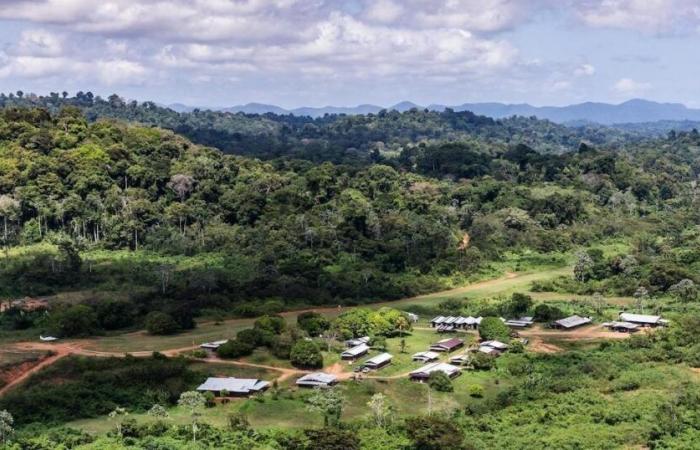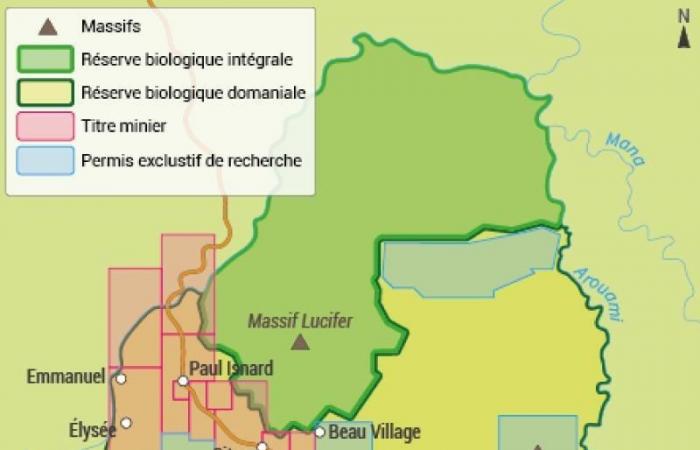Monday there. The cancellation of the extension of the concession for this vast gold mine project in Guyana was confirmed by the Bordeaux administrative court this Wednesday. An appeal to the Council of State is still possible.
“We are happy with this victory! The judge says that we are stopping the Montagne d’Or project because there are exceptional biodiversity issues.” Joined by VertNolwenn Rocca, coordinator of the Guyane nature environment (GNE) association, at the initiative of this legal fight, can savor. The Bordeaux administrative court of appeal confirmed this Wednesday that the concessions of the mining company Montagne d'Or, which has been carrying out a major open-air mining project in Guyana for several years, could not be extended.
This project “presents a risk of serious harm to the environment” given the “extremely polluting” nature and the “importance” of its industrial dimension, considers the court, whose decision may still be subject to review. an appeal to the Council of State. “If there is no appeal within six days, it is the end of the project in this area”hopes Nolwenn Rocca.
Montagne d'Or is the largest primary gold extraction project ever proposed in France, led by the Russian-Canadian consortium Nordgold-Orea mining (formerly Columbus gold).
For several years, the company has been planning to open an open-air gold mine at least 2.5 kilometers long, 400 meters wide and more than a hundred meters deep, on the edge of the Biological Reserve. integral part of Lucifer Dékou-Dékou, in the north-west of Guyana.
“Important ecological continuity issues”
At the end of 2020, the Cayenne administrative court annulled a decision of January 21, 2019 by which the Ministry of the Economy refused to extend two concessions for 25 years, as requested since 2018 by the promoters of Montagne d'Or. Decision that the Bordeaux Administrative Court of Appeal confirmed in the summer of 2021.
But in February 2022, the Constitutional Council declared contrary to the French Basic Law a part of the old mining code which allowed concessions to be renewed without taking into account the environmental consequences, opening a route of appeal against the controversial project in Guyana.
In October 2023, the Council of State, seized by the Ministry of the Economy, annulled the judgments of the Bordeaux administrative court of appeal from 2021 and referred the case to this same court. “In view of this new legal framework”, the court this time examined the environmental consequences of the concession extensions requested by the mining company, concluding that the refusal by the administration was legal.
It thus notes that the concessions in question, totaling approximately 40 square kilometers, “are located in the equatorial forest of Guyana, which constitutes one of the richest ecoregions in the world in terms of biodiversity” and that the area presents ” important issues of ecological continuity.
“It really is a paradigm shift on mining documents, welcomes Nolwenn Rocca. The dealership was looked at in a big way. It is located between two forest massifs which constitute an integral biological reserve. The judge reflected on the overall impact on the continuity between these two massifs. We hope that this will set a precedent for other ongoing concession extension projects.”
The old mining code, in its version prior to the overhaul due to the Climate and Resilience law of 2021, allowed concessions to be extended by law when the deposits to which they relate were still exploited.







